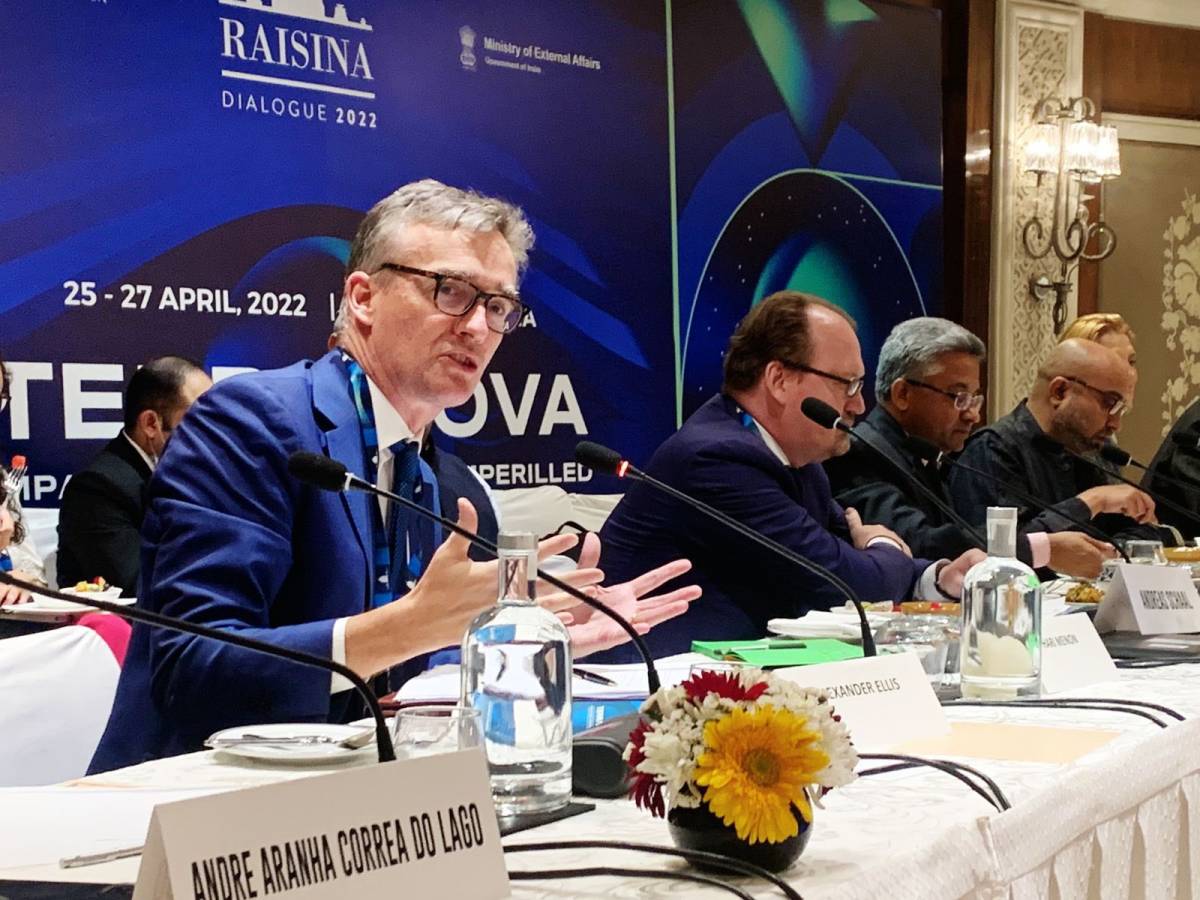Alex Ellis, the British High Commissioner to India, said that the number of visas issued to Indian students went up from 20,000 five years ago to one lakh last year, and is likely to climb further up…reports Asian Lite News
India is likely to overtake China vis-à-vis the number of overseas students going to Britain this year. At present, China sends the maximum number of international students to the UK, followed by India.
Alex Ellis, the British High Commissioner to India, said that the number of visas issued to Indian students went up from 20,000 five years ago to one lakh last year, and is likely to climb further up.
He added that this year, the number of Indian students on British campuses would surpass China. “We issued roughly 1,00,000 student visas last academic year. We hope to beat the record of last year. There’s been a huge growth in Indian student numbers to the UK. We’ve got down to somewhere very low, less than 20,000 four or five years ago, now it’s up to 100,000, we want to go even higher. It could be that this year India overtakes China in terms of students coming to the UK.”
India and UK had recently signed a memorandum of understanding to mutually recognise educational qualifications inclusive of maritime education and agreed upon a framework for healthcare workers. Ellis said that the MoU would enable the “recognition of the UK’s master’s degree by Indian authorities, which would be particularly relevant if one is seeking a government job or wishing to do a PhD in Britain”.
The British government had announced the pact, which is aimed at benefitting both undergraduate and postgraduate students of both the countries, stating “the MoU, part of the UK-India Enhanced Trade Partnership (ETP) agreed by Prime Minister Boris Johnson and Prime Minister Narendra Modi last year, means A-levels and their equivalents, undergraduate and postgraduate degrees will now be recognised in India.”
The statement noted that the two sides additionally inked Memorandum of Understanding (MoU) to implement the ETP commitments to create a task force to provide opportunities for Indian nurses and nursing associates seeking to train and work in the UK’s National Health Service.
According to the British High Commissioner, this move will help build more confidence and trust between the nations and increase the flow of people between India and the UK.
He added: “A lot of people are already moving between the UK and India, but we want even more, including more people from Britain coming to India. Essentially, we would recognise Indian masters. That will help people from India if they want to get employment in the UK, so it works both ways.”
To mark India’s 75th year of independence, Britain is offering 75 — the highest number of Chevening scholarships to students from the country. The number of Chevening scholarships being issued to Indian students may go higher from next year if more sponsors join in.
Of the 75 scholarships, HSBC India will fund 15 of them, Pearson India will fund two, while Hindustan Unilever, Tata Sons, and Duolingo will each fund one.
Since 1983, the UK government has sponsored the Chevening international honours programme, which is available in 150 nations and is aimed at creating world leaders. With over 3500 graduates, India’s Chevening programme is the biggest in the world.
For a one-year postgraduate programme, the fully financed scholarship covers tuition, living expenses, and travel costs. Candidates must have at least two years of work experience to be eligible for the prize.
Considering the growing interest of Indians to study in the UK, the British embassy is taking measures to speed up the visa process. A few years back, only around 20,000 students visited the UK for studies, but the numbers now have increased manifolds. “There is every possibility that India will soon overtake China in terms of international students’ inflow to the UK. Free Trade Agreement (FTA) between the two countries in turbulent times as seen in Afghanistan and the Russian invasion of Ukraine, will help in deepening the relationship between the two democracies,” added Ellis.
High Potential Individual (HPI) visas have been opened by the UK that allows two years stay to qualified people who have degrees from 50 prominent universities. “After Brexit, some of the policies have been changed to initiate controlled migration. However, this rule has made it relatively easy for Indian nationals to go to the UK. As of now, around 44% of skilled work visas go to Indians. You will see talented people spending time in the UK, studying and working there and eventually coming back to India, which is enriching for both the countries,” said Ellis.

Leave a Reply